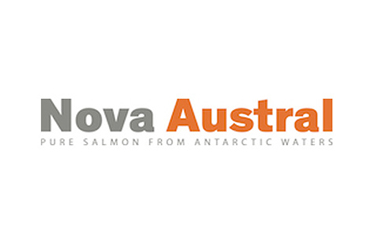Chile’s Council for the Defense of the State (CDE) filed a criminal lawsuit against five executives of the salmon farmer Nova Austral, forcing an investigation into their responsibility for fraud, according to an announcement by CDE.
According to local paper El Mostrador – which originally broke the story last year of Nova Austral’s reporting of false mortality figures, which led authorities to file charges against the company – the five executives are Arturo Schofield Muga, Drago Covacich McKay, Nicos Nicolaides Bussiemius, Rigoberto Garrido Arriagada, and Isaac Aaron Ollivet-Besson Osorio, as well as anyone else that may be responsible for the fraud. At the time, El Mostrador dubbed the scandal “Salmon Leaks.”
Four of the five executives named in the suit had previously been fired from Nova Austral and no longer work for the company, with only Ollivet-Besson Osorio remaining, it was confirmed.
From 2016-2019, the company received around CLP 60 billion (USD 75.7 million, EUR 67 million) in tax benefits under the so-called Navarino Law, or Law 18,392, but it wasn't entitled to those benefits due to falsification of data, according to the lawsuit. The company adulterated the mortality rate information reported at its aquaculture centers and artificially altered the environmental conditions in bodies of water where it operates, CDE said. Because of those actions, Nova Austral fraudulently obtained monetary benefits under the Navarino Law, according to the suit.
Originally enacted in January 1985 and set to last 50 years, the Navarino Law provides a series of tax and customs benefits for companies in the industrial, mining, aquaculture, transportation, and tourism sectors that have activity in southern Chile’s XII Region of Magallanes and the Chilean Antarctic – principally on the Island of Tierra del Fuego, Cape Horn, and part of the coast of the Strait of Magellan. Of the roughly 200 companies that have made use of this benefit, the permits have reportedly been withdrawn from 170 firms as they never launched operations or were unable to continue.
Nova Austral made waves when it announced the launch of farming center operations in the cold, pristine waters found in Alberto de Agostini National Park in XII Region, saying that state-of-the-art technology, tested in Norway, would keep Nova Austral salmon more healthy and free of antibiotics, and that they would suffer fewer fatalities from ISA virus.
However, after reporting Nova Austral’s false fatality rates, El Mostrador uncovered “Salmon Leaks 2,” finding that Nova Austal used heavy machinery to adulterate the heavily affected seabed in order to hide its anaerobic condition and deceive authorities into allowing further salmon farming activities in the biologically damaged marine spaces.
Now, as a precautionary measure, CDE was able to get pending Navarino Law payments withheld from Nova Austral of some CLP 7 billion (USD 8.8 million, EUR 7.8 million). It also expanded its lawsuit to accuse the company of crimes under the General Fisheries and Aquaculture Law, resulting from the damage caused to hydrobiological resources stemming from the introduction of polluting agents into the bodies of water.
“It should be noted that the exercise of the criminal suit filed does not prevent the eventual filing of a civil suit by the CDE for reparation of environmental damage, with respect to which [CDE] is gathering information,” it noted.
As a result of the scandal, the Aquaculture Stewardship Council stripped Nova Austral of its certification and the Monterey Bay Aquarium Seafood Watch program disassociated itself from the firm.
In its latest earnings report, Nova Austral said that “the pending legal and regulatory matters are progressing, however, with limited developments since last report.” It highlighted the management changes implemented in April this year, looking to bolster administration.
The CDE was formed in 1895, under then-President Jorge Montt Alvarez, to represent the treasury and the state in fiscal disputes. CDE now oversees 17 public prosecutors' offices, which have as their mission the defense and legal representation of Chile’s interests, be they civil or criminal.
Nova Austral is owned by the equity funds Altor Fund III and Bain Capital. Its entire operations are in the Magallanes and Antarctic regions, employing some 800 people directly. In terms of revenue by market, during Q1, the U.S. represented the lion’s share of Nova Austral sales at 63 percent of its sales, followed by Europe at 19 percent, and Asia at 13 percent.







